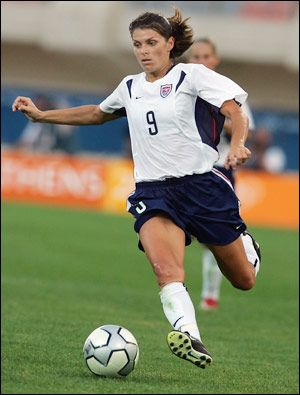As Athletic Trainer Appreciation Month comes to a close and the spring thaw begins, give it up for our local athletic trainers. They are doing great work keeping the Pioneer Valley an active and vibrant community! The people at Strides Human Performance, Energia Fitness, Advance Perfomance Player Development, Conca Sport and Fitness, Integrated Muscular Therapy and countless others are working crazy hours to get you back in the game...
An Orthopedic information source updated by the physicians of Cooley-Dickinson Medical Group Orthopedics and Sports Medicine; aimed at helping the active population of Western Massachusetts get the most out of life.
Sunday, March 29, 2015
Sunday, March 22, 2015
Can I golf after my Shoulder Replacement?
The rehab and recovery from a shoulder replacement is an arduous process but one that is usually quite rewarding. The technology and surgical techniques behind shoulder replacements have made huge advancement recently. And while they may not have you pitching for the Red Sox this summer, they can go a long way towards ridding you of constant shoulder pain and get you back on the links.
In a recent survey of shoulder surgeons in the Journal of Shoulder and Elbow Surgery, ~74% allowed their patient to return to some sort of sport with the majority recommending non-contact, low risk of fall sports. Many of my patient return in swimming, golf, cycling and even tennis after a shoulder replacement. To be fair, if you couldn't play the piano before you get your shoulder replaced, it is unlikely that you will be able to play afterwards.
In a recent survey of shoulder surgeons in the Journal of Shoulder and Elbow Surgery, ~74% allowed their patient to return to some sort of sport with the majority recommending non-contact, low risk of fall sports. Many of my patient return in swimming, golf, cycling and even tennis after a shoulder replacement. To be fair, if you couldn't play the piano before you get your shoulder replaced, it is unlikely that you will be able to play afterwards.
Wednesday, March 18, 2015
I am a 43 year old Athlete and I tore my ACL, now what?
The short answer is, you don't need it. As a sports medicine surgeon, I live to get people "back in the game", be that Eathampton HS football or the over 40 soccer leage at Allsports. However, most of life does not require an ACL. So why can I ski bumps without an ACL, but my kid's babysitter should have it reconstructed? The answer lies with age. In the over 40 population, it has long been thought that there are 3 groups of people who tear their ACLs: Copers, Adapters, and non-Copers.
If you are a Coper, with some dedicated rehab and a brace, you can return to all of the dumb things you were doing before you tore your ACL. If you are an Adapter, with some good rehab and a whiff of mortality, you get back to life and many of the things you were doing before, but you take a less aggressive approach to athletics. You limit the cutting, twisting, pivoting sports, but can remain active in athletics that are less "ACL Dependant". If you are a non-Coper, you knee feels unstable inspite of dedicated rehab and a brace, and you are unwilling to accept the limitations that this injury has foisted on you. In this case, there is decent evidence that an ACL reconstruction will help you stabilize your knee and get you "Back in the Game". For most middle aged athletes, life is busy and they don't have the time to jump right into the 6-9 month rehab that an ACL recontruction requires, so the most common recommendation is to try non-surgical management of the ACL tear and see how it goes.
If you are a Coper, with some dedicated rehab and a brace, you can return to all of the dumb things you were doing before you tore your ACL. If you are an Adapter, with some good rehab and a whiff of mortality, you get back to life and many of the things you were doing before, but you take a less aggressive approach to athletics. You limit the cutting, twisting, pivoting sports, but can remain active in athletics that are less "ACL Dependant". If you are a non-Coper, you knee feels unstable inspite of dedicated rehab and a brace, and you are unwilling to accept the limitations that this injury has foisted on you. In this case, there is decent evidence that an ACL reconstruction will help you stabilize your knee and get you "Back in the Game". For most middle aged athletes, life is busy and they don't have the time to jump right into the 6-9 month rehab that an ACL recontruction requires, so the most common recommendation is to try non-surgical management of the ACL tear and see how it goes.
Monday, March 9, 2015
Specialization in Youth Sports
I have many families asking about young kids "specializing" in one sport. There is a perception that kids need to master specific skills if they are to continue to compete. Below is an interesting take on the growing specialization of athletic kids.
"As more and more kids play the same sport year-round from an early age, they are increasingly vulnerable to injury. A report this year by the sports medicine department at Loyola University of Chicago found that "kids are twice as likely to get hurt if they play just one sport as those who play multiple sports."" Link to the complete Daily Herald article



